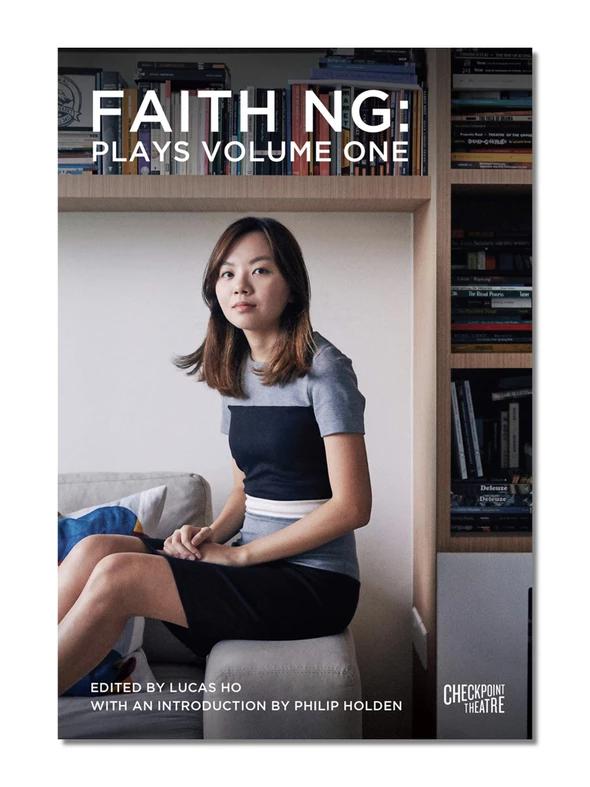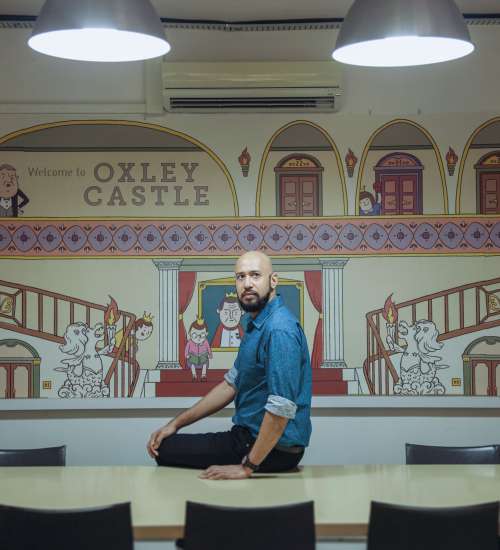Where do you feel Singapore's literature scene is right now, and where is it headed?
I think it’s an exciting time to be in the arts scene now. Social attitudes are shifting, and there is a growing sense that the arts are an important aspect of Singapore’s identity. Publishing houses and theater companies are taking greater interest in mentoring new writers and providing better support for those currently writing. There are increasing spaces to publish, stage and workshop new writing. There are also more funding opportunities, and young writers and new writing have been getting more publicity from the media.
A recipient of the National Arts Council Young Artist Award in 2018, Faith Ng is the author of “Faith Ng: Plays Volume 1,” published by Checkpoint Theatre, and the playwright behind 2015’s sold-out “Normal,” which was restaged in 2017. Checkpoint Theatre’s upcoming production, “Eat Duck” by Zenda Tan, runs from August 29 to September 8 at SOTA Studio Theatre.
What are your thoughts on the impact that digital publishing and audiobooks may have on what you do?
I feel that we are beginning to lose the ability to reach out to each other in person because society is increasingly saturated with technology. Augmented and virtual reality are so much a part of our everyday existence. This makes the live element of theater all the more potent and powerful. There is nothing quite like watching actors — real physical bodies moving in space — giving themselves and their time so fully to audiences, who in turn give their attention and time back to them. It's always a very magical experience for me to witness that connection between the performers and audiences, and that keeps me going as a playwright.
What do you feel people are seeking when they read books or attend productions, and especially those by Singapore authors?
I can’t speak for them, so I’ll speak for myself — Growing up, I was exposed to a lot of works that did not reflect the reality that I experienced and lived in. I felt that a lot of the languages that I listened to, such as Hokkien and Teochew, were being negated in the media. I wanted to reclaim them. Singlish, in particular, has always been criticized for being “broken” and often has been used as a way to induce slapstick humour. But Singlish can also be poetic, playful and inventive. It can express deep and complex thoughts, and draw people together on a very intimate level. I’ve tried to draw out these nuances in my plays, and it always makes me glad when audience members come up to me and tell me that these stories capture slices of their own lives, and they feel seen, heard, and a little less alone (as do I).
Why are you motivated to do what you do?
Writing can be terribly lonely business, and it is hard, hard work. Thankfully, in theater, you never work in isolation. The good people at Checkpoint Theatre have been a source of encouragement for me. We talk openly to each other about our explorations, questions, concerns, and fears, and artistic dreams. We also share our creative ideas with each other, and everyone chips in such an unselfish and compassionate manner to improve these ideas further.
I also remind myself of my personal philosophy: to always to value life over art, because how you lead your life is the most important work of art. So if I hit a wall with my writing, I’ll try not to beat myself up over it. It’s just not healthy or productive. I try to extend that same kindness, love and patience not just to myself, but to the characters I am getting to know as I write them out.
What are your hopes and fears with regard to writers, the content they produce, and the publishing industry? What are the biggest challenges facing the local literary and creative communities?
New writers may still be overwhelmed by the difficulties of working in the scene, especially as freelancers. Often there is no clear sense of how our work should be protected, valued, or acknowledged.











 Back
Back
